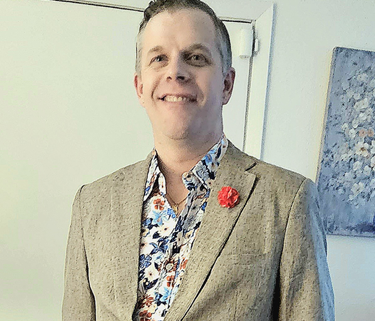DSP Spotlight: Lawrence Discusses Hardship Imposed on Direct Care Workforce
 Working with people with disabilities is Lawrence’s long-time passion. He has worked as a direct support professional (DSP) in New York and Texas, both before and after serving in the Army. As a DSP, Lawrence takes pride in the trusted role he has in the lives of people with disabilities. He helps transport people to and from appointments, gives medicine, cooks, cleans, dresses, changes, and feeds people who may not be able to do these things for themselves. He even seeks out specialized training that is needed to support people who have challenging behaviors that may result in injury to themselves and others.
Working with people with disabilities is Lawrence’s long-time passion. He has worked as a direct support professional (DSP) in New York and Texas, both before and after serving in the Army. As a DSP, Lawrence takes pride in the trusted role he has in the lives of people with disabilities. He helps transport people to and from appointments, gives medicine, cooks, cleans, dresses, changes, and feeds people who may not be able to do these things for themselves. He even seeks out specialized training that is needed to support people who have challenging behaviors that may result in injury to themselves and others.
For years, the DSP field has been undervalued and underfunded. For Lawrence, this comes from a lack of recognition and social awareness.
“It is important for people to recognize the skills, training, and importance of our profession and how comparable it is to jobs with similar requirements,” says Lawrence. “I have performed in nursing and emergency services roles; I can say these skills easily translate to direct support professionals. However, these other professions receive not only more public credit but also a substantially larger salary… I have served in this profession for 18 years and don’t have the heart to leave. But right now, I am only earning just over minimum wage and having to work 60 hours a week.”
Dedicated direct support professionals do their best every day to care for people with disabilities and seniors. However, due to poor pay, it is hard for many DSPs to support themselves and their families on this below-average wage.
Recently, the crisis impacted a family that Lawrence works with. When the mother could no longer physically care for her teenage son, Lawrence stepped up. In Texas, it can take 6 years, on average, to get Medicaid home and community-based services. During this time, many people with disabilities end up in institutions, like nursing homes, because they can’t get the support they need to live at home. To prevent this from happening, Lawrence offered to house the teenager and care for him in his own home, at his own expense. “I support him out of the very wages I am paid by Medicaid for my work. It is my choice, but I shouldn’t have to do this for the young man to get the help he needs,” says Lawrence.
Being a direct support professional requires many critical skills but is often easily overlooked by those making decisions about Medicaid funding. As a result of this oversight, there are not enough DSPs to help all the people who need care. The low pay scale often means that people are not able to gain proper training or stay long enough in a DSP role to learn all the skills needed for the position.
“It is my prayer that our government works diligently to support the people with disabilities in our communities and their families. It is desperately important that the processes for funding, equipment, placement, and care be streamlined and that we recognize the value and appropriately pay those who work with people in need. It is through this that we will drastically improve the quality of care and quality of life of those with disabilities.”








